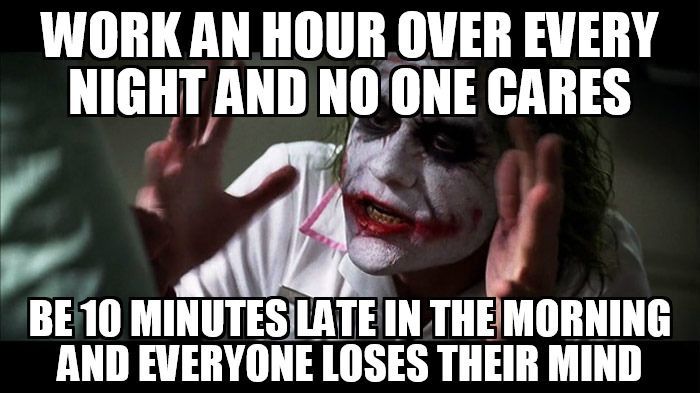Slowly but steadily, Sweden is making steps towards the biggest work change since Ford’s bold move in 1926. As Fast Company recently brought to our attention, the 6-hour workday is becoming common among many Swedish companies. Apparently, working fewer hours makes employees more productive and boosts their family time. People arrive happier at work; do their job with focus; and then, they head back to their happy private lives. Should other countries also give it a try?
Statistics from OCED seem to indicate U.S. as the second most productive country in the world, only outrun by Luxembourg. However, the difference between the U.S. and Luxembourg is that Americans spend 20% more time at work.
Discrepancies between how much time we spend at work and how productive we ultimately are vary widely, from one country to another. The Office For National Statistics report for 2013, for instance, indicates that the Brits aren’t doing too well either. They put in more hours than French and German employees, but they produce less by 27-31%.
All things considered, it looks like somewhere, someone is doing something wrong. Otherwise, working extra wouldn’t be the norm for most of us.
Luckily, the Swedes know better, so what can we learn from them?
6-hour workday experiments in Sweden
Having their employees work two hours less per day is only recently making waves in Sweden. But people there have been taking steps in this direction for over 10 years now. Some of the most notable experiments throughout the years were initiated by:
- Several retirement homes and day cares, back in the 1990s;
- Toyota service centers from Gothenburg, 13 years ago;
- Svartedalens retirement home in Gothenburg, at the beginning of 2014;
- Numerous businesses in Stockholm, back in 2014 – Brath (a tech startup), Filimundus (an app developer) etc.
The retirement homes that made the move gave up to this system because of the new costs involved. Fewer working hours for the current employees means bringing in new employees to cover the shifts. Their problem was money, something that private companies don’t always encounter.
That’s why Toyota was able to carry on the “experiment” for over a decade, gaining profits that rose up 25%, according to Martin Banck, managing director who spoke with David Crouch from The Guardian.
The reasons behind the 6 hour Swedish workday
Overall productivity increases
This one is backed up by the previously mentioned experiment from the Svartedalens retirement home. According to The Guardian, they reduced their nurses working hours to six and brought in 14 new nurses. Without a doubt, paying full time for all the employees was a significant financial effort, but the reward was that they reduced the nurses’ burnout and it made them more efficient and productive.
The same article from The Guardian quotes a researcher from University of Lund who makes a very good point regarding work productivity and working hours. According to Roland Paulsen, politicians have always insisted on creating new jobs and putting in more hours in order to increase productivity. But since the technique has become so developed and the productivity already increased, they might as well afford to cut the working day to half. The only challenge would be to find a smart way for distributing the current productivity gains.
Workers become more focused
In 2000, the average human attention span was 12 seconds. In 2015, it went down to 8.25 seconds. Meanwhile, the average attention span of a goldfish remained at 9 seconds. Way to go fishy! Aside from our decreasing attention span, it turns out that our brains aren’t very comfortable with multitasking either.
So the more things we try doing, the less productive we are. And the more hours we spend at the office, the more we struggle to focus, to cope with the multiple tasks, and to make those 8 hours bearable.
Linus Feldt, the CEO of Filimundus, declared for Fast Company that he simply asked his employees to stay away from social media, cut back a few weekly meetings and they seemed to have just enough time to accomplish their duties in fewer working hours. Then, he added: “My impression now is that it is easier to focus more intensely on the work that needs to be done and you have the stamina to do it and still have energy left when leaving the office”.
Everyone gets a life other than work
Fewer hours spent at the office automatically creates more spare time. And it’s not just that extra time, but also that extra energy that make this new experience more valuable. Most people still have a few hours left a day for their personal lives. But they are soaked up of energy, they lack the stamina and the enthusiasm for anything other than satisfying basic needs once they get home.
When they work less, people leave the office with more enthusiasm and they actually get to use their time in a productive and rewarding manner. They have more time for family, they can freshen up their social life, they can delve into a hobby, they can practice a sport and much more.
The CEO of Brath, the other tech company we mentioned, Maria Brath, makes another good point: companies willing to pay more in order to have their employees work less but stay more productive score big popularity points. This effort basically shows that they are dedicated to making their workers happier and those workers value them more, become even more dedicated in return, and have no reasons to look for another job.
Would you like a 6-hour workday that pays you for eight hours?
Opinions expressed here are opinions of the Author. Influencive does not endorse or review brands mentioned; does not and cannot investigate relationships with brands, products, and people mentioned and is up to the Author to disclose. Accounts and articles may be professional fee-based.





